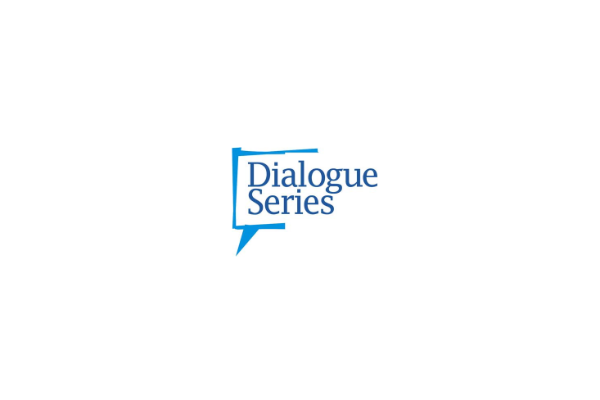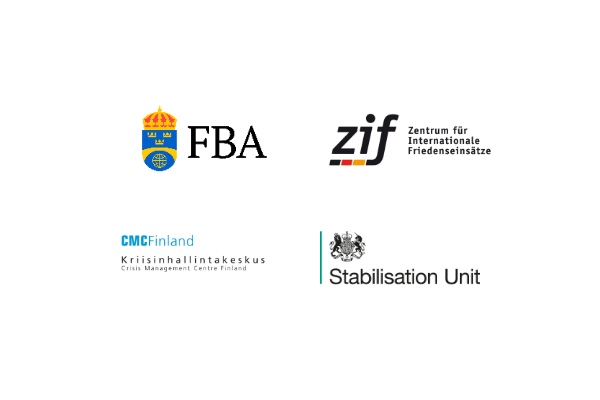Dialogues and Networks
Our dialogue formats bring together a wide range of stakeholders from policy to practice. Together with our national and international partners, we advance ideas, projects and standards. All in the interest of rendering peace operations more efficient and multilateral action more effective.
Dialogues
Berlin Dialogue
The “Berlin Dialogue” has become an established, trusted format, in which we – together with our partners – address a variety of current issues every year. Primarily, the Berlin Dialogue picks up questions of direct operational relevance or evolving policy processes. Most recent examples are the Colombian peace process and the impact of digital technologies in and on peace operations.
Implementing Peace Agreements at the Local Level
In December 2019, the expert dialogue on the Colombian peace process presented the challenges of implementing comprehensive peace agreements at the local level using the example of the Arauca province in Colombia as a case study. The workshop brought together policy makers, UN representatives and parties to the conflict in Colombia. The participation of local actors was of particular importance in helping better understand local challenges. This allowed participants to identify lessons learned that can be applied to the local implementation of peace agreements in other countries and conflict contexts.

Technologies and Peace Operations
In October 2019, in cooperation with the UN Department of Peace Operations, we hosted an expert dialogue on "Technology and Peace Operations,” in which approximately 40 representatives from civil society, research, peace operations and the business community addressed the latest developments in the field of digital technologies. The focus was predominantly on the impact of digital technologies on conflict and the risks and opportunities this entails for conflict management. We have expanded our activities on this topic on our ZIF TECHPOPS Blog in 2020.
Trilateral Dialogues
Trilateral dialogues offer participants, mainly representatives of international organisations, an opportunity for in-depth discussions on common challenges. The dialogue between organisations such as the EU, the UN, the OSCE, the AU and others provides the space for a structured exchange on tasks, approaches and strategies for resolving or transforming conflicts and dealing with conflict actors. At times, the focus of these dialogues has been cooperation on a specific common issue or on joint areas of operation.
In May 2019, we organised expert exchanges on protracted conflicts in cooperation with the Mediation Support Team of the OSCE Secretariat and with the assistance of the UN Mediation Support Unit. Special representatives and mediators working in particularly prolonged and persistent conflicts, including in the Caucasus, Moldova, North Macedonia, Cyprus and Western Sahara, discussed different approaches and best practices for mediation efforts in these challenging contexts.
Previous dialogues have focused on topics such as addressing organised crime in countries hosting peace operations, peace operations partnerships, or strategies for strengthening the rule of law.

DSRSG Dialogues
For the past ten years, we have conducted the "DSRSG Dialogue Series" in cooperation with the United Nations Systems Staff College in Turin and the German Federal Foreign Office. The dialogues are targeted at the Deputy Special Representatives of the Secretary-General of all UN peace operations, as they play a central role in the strategic and operational design of mandate implementation. The dialogue was created to enable these senior-level managers to engage in regular peer-to-peer exchanges. In addition to current operational issues, the 2019 DSRSG dialogue focused on reform of the UN peace and security pillar, as well as on the reform’s implications for the field.
Networks

Quadrilateral Format
Together with our closest partners, the UK Stabilisation Unit, the Crisis Management Centre in Finland and the Folke Bernadotte Academy in Sweden, we launched a network in a "Quadrilateral Format" a number of years ago. Together, we debate important initiatives in the area of peace operations and promote issues such as Duty of Care. The four organisations meet annually at management level to exchange ideas, coordinate initiatives and develop a common strategy.

International Forum for the Challenges of Peace Operations (Challenges Forum)
The Challenges Forum s a global association of 50 organisations from 23 countries, all of whom are active in the area of peace operations. Its members represent the main countries contributing military and police personnel, as well as major donor countries. It also includes the five permanent members of the UN Security Council (i.e. the P5 China, France, the United Kingdom, Russia and the United States). The Challenges Forum organises a major annual conference, among other formats. These events offer an informal environment for dialogue and reflection, in which participants can explore key aspects and challenges of multidimensional peace operations. This also includes, for example, the development of recommendations for the UN Secretary-General's Action for Peacekeeping agenda.
Effectiveness of Peace Operations Network (EPON)
The Norwegian Institute of International Affairs, together with more than 40 partner organisations worldwide, founded the Effectiveness of Peace Operations Network (EPON) to jointly research the effectiveness of international peace operations. The EPON studies – each of which looks at a specific peace operation – are based on several weeks of field studies and thus offer insights into the realities of individual peace operations. All operations are evaluated in accordance with a common standardised methodology. Previous EPON studies have covered the Democratic Republic of Congo, Mali, Somalia, South Sudan, the Central African Republic, Darfur, Colombia and Ukraine.
Networks of Experts
ZIF also participates in the network meeting for German civilian employees in UN peace operations in an effort to strengthen the German civilian contribution to UN peace operations in cooperation with the German Federal Foreign Office. The network meeting aims to provide a forum for the exchange of expertise across peace operations and topics, as well as an opportunity for getting to know one another. The multifaceted programme of the network meeting allows participating institutions to share their respective insights and day-to-day challenges and includes additional thematic discussions.
The network meeting has taken place twice in Berlin and has brought together approximately 60 German experts from over 15 different UN peace operations, along with high-ranking representatives of the Federal Foreign Office and the Permanent Mission of Germany in New York.